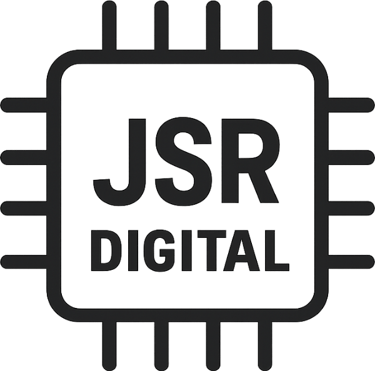The Future of SEO in an AI-First Search Era
Now, as we enter 2025, the biggest disruption yet is here: the AI-first search era. With search engines integrating generative AI to provide conversational, contextual, and personalized answers, businesses and marketers must rethink how they approach Future of SEO in an AI.
9/24/20253 min read


Search Engine Optimization (SEO) has always adapted to technological shifts — from keyword stuffing in the early 2000s to mobile-first indexing and voice search in the last decade. Now, as we enter 2025, the biggest disruption yet is here: the AI-first search era.
With search engines integrating generative AI to provide conversational, contextual, and personalized answers, businesses and marketers must rethink how they approach SEO. The future is not just about ranking on the first page — it’s about being relevant in AI-powered results.
What Is AI-First Search?
AI-first search goes beyond traditional keyword-matching. Instead, it uses large language models (LLMs), natural language processing (NLP), and machine learning to understand intent and generate direct answers.
Examples include:
Google’s Search Generative Experience (SGE): AI summaries appear above traditional search results.
ChatGPT with browsing: Users ask questions and get curated answers with links.
Perplexity.ai & Neeva AI: AI-native search engines that blend results with conversational insights.
In this era, SEO is less about ranking a webpage and more about feeding the AI the right signals to ensure your brand appears in answers.
How AI-First Search Changes SEO
1. From Keywords to Conversations
Traditional SEO revolved around keywords. AI-first search focuses on context and intent. Long-tail queries, conversational phrases, and natural language will dominate.
Example: Instead of searching “best CRM tools 2025,” users may ask, “What’s the best CRM for a small retail business?” AI will generate tailored answers.
2. Decline of “10 Blue Links”
Organic results are no longer the centerpiece. AI summaries, snippets, and direct answers often appear above traditional links. This means zero-click searches will increase, reducing website traffic but raising the importance of brand mentions within AI answers.
3. Content Quality > Quantity
AI engines prioritize authority, accuracy, and freshness. Spammy or repetitive content will be filtered out. Content must be useful, unique, and trustworthy.
4. Brand Visibility Over Rankings
Being cited in AI answers will matter more than being “Rank #1.” Businesses must focus on building topical authority, brand reputation, and structured data that AI can easily process.
Strategies for SEO in an AI-First Era
Optimize for AI Answers
Use clear, structured formats (FAQs, step-by-step guides, lists) that AI can easily summarize.
Implement schema markup so search engines understand your content better.
Prioritize E-E-A-T (Experience, Expertise, Authoritativeness, Trustworthiness) signals.
Embrace Conversational Content
Write content in a Q&A format.
Target long-form, natural queries.
Develop resources like “How-to” guides and comparisons, which AI often pulls into summaries.
Build Topical Authority
Instead of writing dozens of unrelated blogs, focus on topic clusters. For example, if you’re in fitness, dominate all subtopics around “home workouts,” from beginner routines to nutrition plans.
Invest in Multimedia Content
AI-first search isn’t limited to text. Videos, podcasts, and infographics are being indexed and summarized. Small businesses should create multi-format content to stay visible across different search results.
Optimize for Voice & AI Assistants
Voice queries are rising, with AI assistants providing instant answers. Content should mimic spoken language and address question-based searches.
The Role of Generative AI in SEO
AI as a Competitor
Generative AI tools can answer questions without sending traffic to websites, threatening publishers and bloggers who rely on organic clicks.
AI as a Partner
Marketers can also use AI tools to optimize content, analyze keywords, and create drafts. The key is to use AI for efficiency while maintaining human creativity and authenticity.
Challenges in AI-First SEO
1. Traffic Decline
With more answers staying within search engines, websites may see a drop in click-through rates (CTR).
2. Content Saturation
AI makes it easy to generate content, which means competition will rise. Standing out requires original insights, data, and experiences that AI can’t replicate.
3. Trust & Accuracy
AI sometimes “hallucinates” or gives incorrect answers. Businesses must ensure their brand reputation signals (reviews, citations, backlinks) are strong enough for AI engines to trust.
4. Measurement Shift
Traditional SEO metrics (rankings, organic clicks) may lose importance. New KPIs like AI mentions, citation frequency, and engagement quality will become more relevant.
Opportunities for Businesses
Despite the challenges, the AI-first search era brings new opportunities:
Faster Global Reach: AI-powered translations and summaries expose content to wider audiences.
Hyper-Personalized Visibility: AI delivers tailored results, meaning businesses can connect with niche audiences more effectively.
Authority Building: Brands that consistently publish expert-driven content will dominate AI recommendations.
Future Outlook: What SEO Looks Like in 2030
AI-Native Content Optimization — Websites will optimize not just for Google, but also for AI platforms like ChatGPT, Perplexity, and voice assistants.
Direct Integrations — Businesses may feed data directly into AI engines via APIs, ensuring accurate representation.
Interactive Results — Instead of static pages, search will evolve into interactive, conversational experiences.
Smarter Local SEO — AI will refine local search by combining real-time data (traffic, reviews, opening hours) with predictive suggestions.
Conclusion
The future of SEO in an AI-first search era is not about fighting algorithms but about adapting to them. Businesses that cling to old keyword-based tactics will fall behind, while those who embrace conversational content, authority building, and structured data will thrive.
In 2025 and beyond, the goal of SEO is no longer just ranking — it’s about being trusted, cited, and recommended by AI.
The brands that master this balance of AI optimization and human authenticity will be the true winners of the search revolution.
